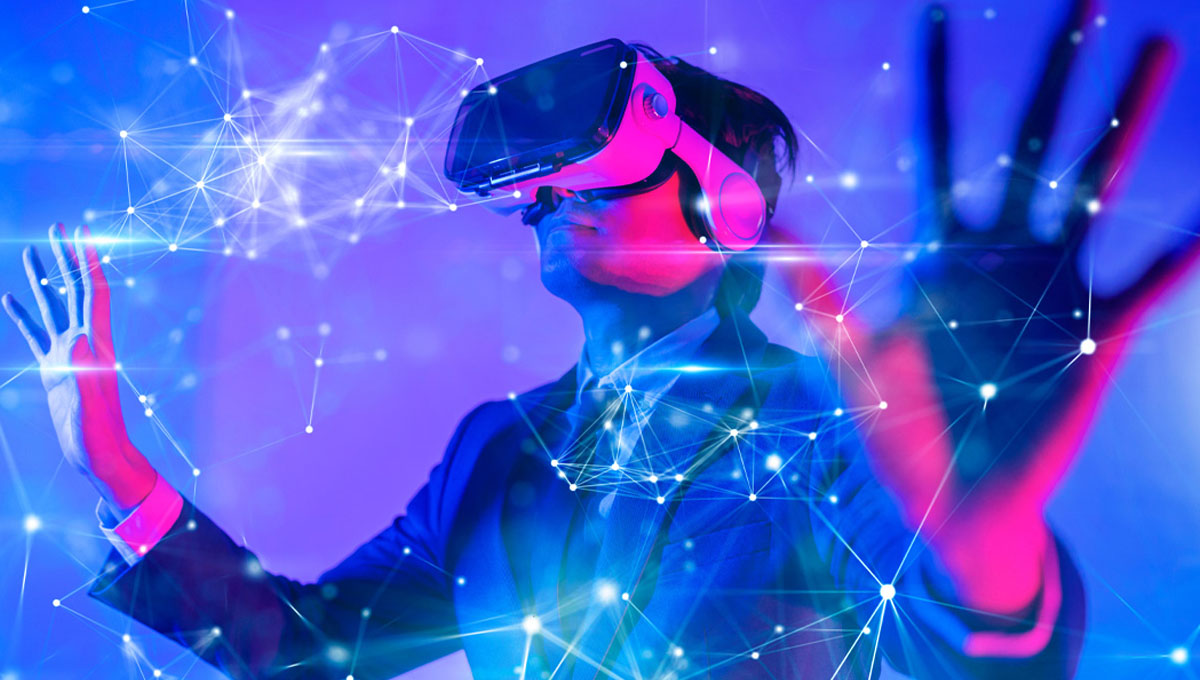Dear friends,
I recently participated in an immersive theatre experience that dwelt on Shakespeare’s tragedy “Macbeth”. Never have I experienced anything like it before! The thought that haunted me post the experience was ‘would this be like my experience in the Metaverse of the future?’ Metaverse, as I understand it, is the continuum of experience from the real world to the virtual world that is reshaping businesses. Interestingly, teams of various multinationals in India are driving this change and will continue to navigate the various metaverses in the foreseeable future. Thus, the relevance and context of my thought in the theatre experience.
As Mark Zuckerberg said, “The best way to understand the metaverse is to experience it yourself, but it’s a little tough because it doesn’t fully exist yet.” With Facebook’s decision to rename itself ‘Meta,’ Disney’s plans to develop its ‘own Disney metaverse,’ and Epic Games’ and Snap’s investments in related technologies, metaverse is now a key discussion topic. Is e-commerce through metaverse popular in your country? Has any e-commerce giant incorporated early metaverse technology in its market place?
Let’s probe more into metaverse – an amorphous term to refer to a revolutionized future of the internet that is currently obscure. Current conceptualisations of metaverse include the use of virtual reality (VR), augmented reality (AR), and avatars, connected by a wide network. With its development, novel and complex legal issues in the fields of antitrust, data and consumer privacy, intellectual property, real estate, and financial regulatory compliance will become increasingly common place.
Such issues become relevant not just in the setup of the metaverse, but also transactions that may be undertaken there. Take a simple example of the movement of an Avatar, or a Data or Digital Asset owned by someone from one location (program, site or platform) to another in the metaverse. Would such a movement result in the loss of functionality or, greater still, identity? It should not; and this can be possible only with an interoperable metaverse, allowing transport of assets and avatars across applications, regardless of the ownership of those applications. Blockchain may be useful in allowing the retention of a user’s identity and ownership in respect of their digital assets. This may create a new property right and interest in the metaverse.
Currently, clarity on the essential technologies and building blocks (Web 3.0) required to propel the metaverse forward is not yet defined. So, will the metaverse really revolutionise the way that people work, learn, and play in much the same way that the embrace of the internet changed society in the early to mid-2000s? Initial steps have been taken in gaming as Epic Games’ Fortnite, Microsoft’s Minecraft, and Roblox can already interact with other users online in a virtual world. Increasingly, games are using AR to digitally enhance reality; Niantic’s Pokémon Go geocaches fictional creatures allow users all around the world to detect and ‘catch’ them on their mobile devices. In terms of monetisation, it is the domain of in-app payments.
On the work front, improved communication technologies are transforming the global workplace – Meta’s Horizon Workrooms, Microsoft’s Mesh, etc. allow users to meet as avatars in a three-dimensional virtual space. Events take on a new dimension in the huge virtual playground of the metaverse as musical performances like Epic Games’ Fortnite, Decentraland’s Metaverse Fashion Week, Guitar Hero, and Rock Band are allowing users to generate music virtually by ‘playing’ plastic instruments.
My personal favourite use is in the healthcare space. Post Covid, AR and VR have found a new critical use in the field of healthcare and medicine, for example, doctors used AR to operate on real-life patients, architects gave it a shot in designing operating rooms using holograms to visualise people and equipment, and medical trainees use it to watch simulations. VR emerged as a useful mental health tool too, like offering an alternative to traditional talking therapies by allowing therapists to guide patients experiencing post-traumatic stress through a virtual world that simulates their past experiences.
However, complex legal issues emerge as the metaverse is designed to allow seamless user immersion, be deeply interconnected, and not based in physical space. And how does jurisdiction, territoriality, and conflicts of laws apply here? Let us consider some issues that may impact the future:
- Since data in the metaverses is exponentially more valuable, digital security and privacy are significant legal issues facing metaverse platform owners. Greater pressure on regulators to match technology sophistication may arise. Interoperability adds a new dimension to data transfers, information security standards, and responsibility for compliance.
- Development of the metaverse may spur additional scrutiny on Big Tech (including action from antitrust enforcers).
- Let’s start with the most typical IP questions related to metaverse – determining the identity of the creators of a given work when the work is a result of a decentralised collaborative process performed by users anonymised behind avatars. How would this impact our understanding of fair use?
- Next, turning to the potential trademark dilution issue in the metaverse, we encounter further uncertainties: would digital assets qualify as ‘goods’ for purposes of the trademark laws? How will liability be fixed if the infringer’s identity is unclear?
- Questions arise around proper verification of ownership and potential infringement or conversion of authentic and verified purchases using blockchain. What is the obligation on operators of platforms to ensure a duty of care for the safety of digital assets purchased using cryptocurrencies and other digital assets?
- Interoperability and connectedness require homogenisation. Would users relinquish the ability to customise their own online environment? How will the standards be set?
- Governance mechanisms would need to be supported with strengthening and scaling efforts to promote digital literacy, safety, and wellbeing, allowing users to navigate harmful content and behaviour.
At this stage, all I can say is that my theatre experience and resultant analysis of the metaverse provided new thought for my speech at an IBA webinar on metaverse. A recording of the webinar is available at https://www.ibanet.org/conference-details/CONF2215. Do check it out for a more in-depth analysis.
Looking forward to meeting with all of you in early June in Paris, for the World Life Sciences Conference.
Warm regards,
Sajai Singh
Co-Chair, IBA Technology Law Committee











Sajai's broad-based practice focuses on Mergers, Acquisitions, Joint Ventures, strategic alliances, restructurings and financings (whether debt or equity), with particular emphasis on cross- border transactions.